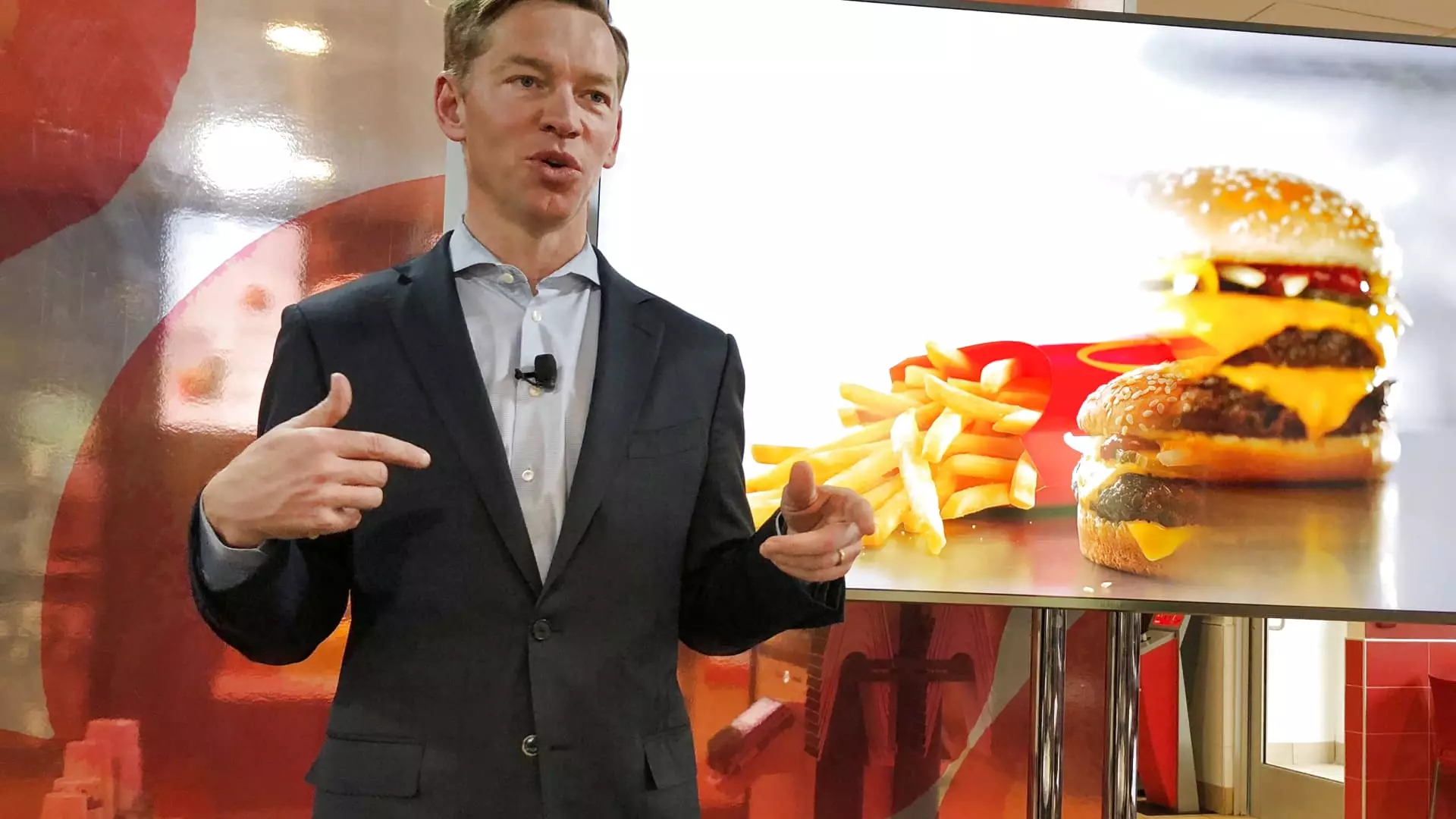In recent weeks, McDonald’s found itself at the center of a public health scare when health authorities linked a lethal E. coli outbreak to their signature Quarter Pounder burgers. The outbreak has profoundly affected consumer perception and elicited a tidal wave of reaction. As a result, the fast-food giant was compelled to halt sales of this popular menu item, impacting approximately 3,000 locations across the United States. This incident illustrates the volatile interplay between food safety, consumer trust, and corporate responsibility, which is fundamental to any major food brand.
With attention fixed on how McDonald’s would navigate the storm, CEO Chris Kempczinski provided crucial commentary during an investor call, assuring stakeholders that the “situation appears to be contained.” His calm demeanor suggested that the company had strategized effectively to manage the disaster, but was it enough to mitigate the damage done to its brand image?
One of the most pressing challenges that emerged in the wake of this outbreak was the task of rebuilding consumer confidence. CFO Ian Borden acknowledged the impact of the outbreak, noting a discernible decline in daily sales immediate to the news. Although Borden remains optimistic that the company wouldn’t suffer long-term adverse effects, the wound inflicted by the outbreak cannot be easily healed. The company’s internal debate centers on balancing transparency and reassurance while maneuvering through this murky terrain of consumer skepticism.
Kempczinski’s apologies resonated with both empathy and pragmatism. His acknowledgment of the consumer impact and the expressions of sympathy were vital in attempting to normalize the brand’s image. However, the question lingers—do apologies matter in a world where consumer advocacy and food safety are of utmost priority? It is no longer just about navigating a crisis but how the brand positions itself in the narrative of food safety moving forward.
In concrete terms, McDonald’s has taken notable steps to remedy the situation. The company has ceased sourcing slivered onions from the implicated supplier until the Food and Drug Administration concludes its investigation. Furthermore, the Quarter Pounder is being reintroduced at approximately a fifth of its U.S. outlets, albeit in a modified form that excludes the onions. Such operational adjustments underscore a proactive approach to addressing safety concerns, but they also reflect the reality that any resolution involves significant shifts within operational protocols.
As health cases stemming from the outbreak were reported across 13 states—culminating in one tragic death—the fast-food chain’s actions would need to resonate with both customers and health authorities. The early indications of a decline in foot traffic hold a mirror to the swiftly changing climate of customer safety and awareness, amidst a backdrop of legal litigation from affected customers.
Financially, McDonald’s reported a modest 0.3% increase in U.S. same-store sales for the third quarter, which, while an improvement, fell short of analysts’ expectations. The stark reality is that while Quarterly earnings suggest resilience, the 1.5% drop in overall same-store sales highlights struggles within international markets. Furthermore, McDonald’s stock experienced fluctuations—down by as much as 2.5% before stabilizing—demonstrating investor concern over longer-term forecasts amidst these difficulties.
As McDonald’s pivots to a strategy focused on rebuilding confidence, the upcoming months will be critical. The company’s initiatives, such as promoting value-driven meal options and highlighting new offers like the Chicken Big Mac, signify a commitment to regaining customer trust and expanding its appeal amidst shifting consumer priorities post-outbreak.
McDonald’s recent experience underscores the complex relationship between a global food corporation and its consumers, especially concerning issues as grave as foodborne illnesses. While the immediate challenges appear to be addressed, the long-term implications for the brand’s reputation remain uncertain. The path to regaining consumer confidence involves more than simply returning the Quarter Pounder to the menu; it requires continuous commitment to food safety, transparent communication, and, perhaps most importantly, a willingness to learn from adversity. As McDonald’s emerges from this crisis moment, its future success will hinge on how effectively it communicates its values and reassures its customer base in an environment increasingly predicated on safety and awareness.


Leave a Reply